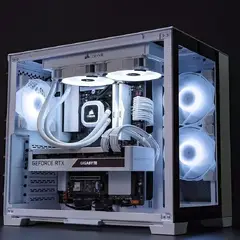When do SSDs start slowing down?
Go to solution
Solved by Guest willies leg,
SSD's typically "slow down" when doing writes, not reads.
the slow down is caused by a lack of contiguous blocks to write. If you write a stripe, it's fast. If you write a block, it has to read the stripe, replace the block with the new one, then write the stripe. Having lots of free contiguous blocks means it can just write the stripe/block, since it doesn't have to replace data. SSD firmware typically deals with garbage collection so you don't have to. That needs space. Typically it's after around 85% full it slows to the point you notice it.
















Create an account or sign in to comment
You need to be a member in order to leave a comment
Create an account
Sign up for a new account in our community. It's easy!
Register a new accountSign in
Already have an account? Sign in here.
Sign In Now